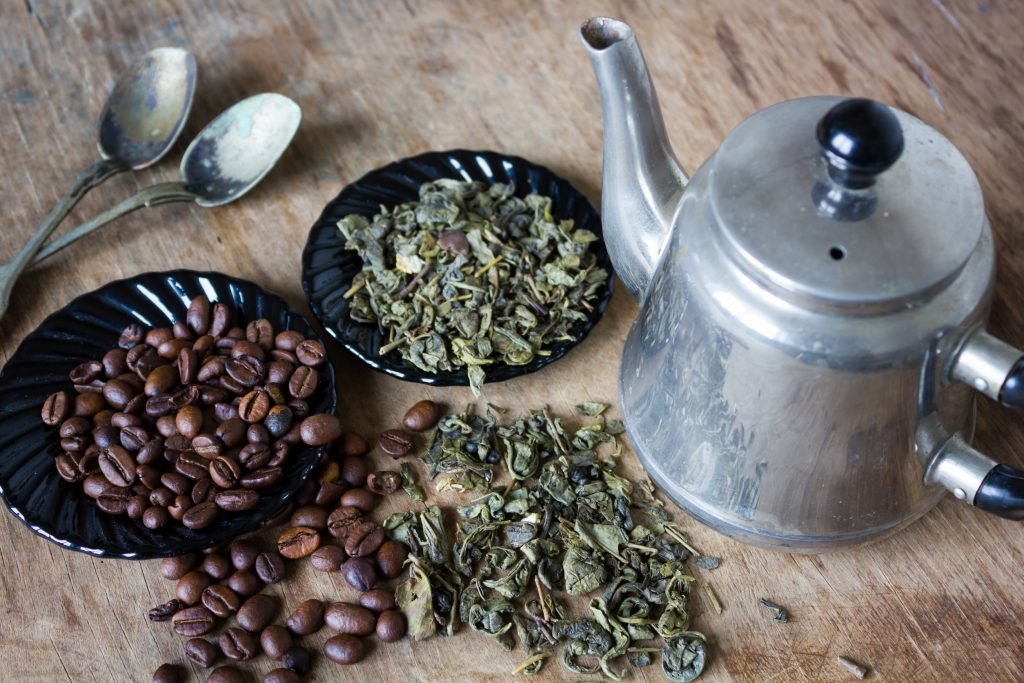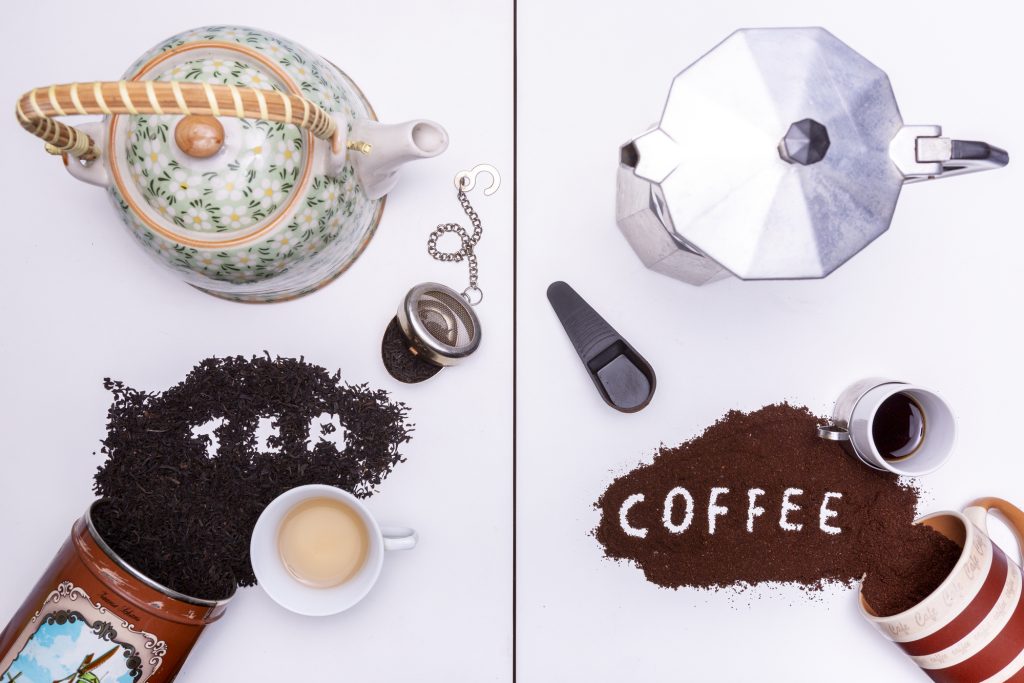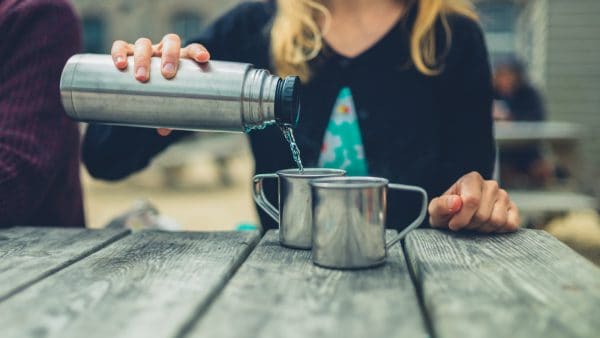For once, imagine your life without tea and coffee – it seems bland, isn’t it? There is absolutely no way one has not tasted both or either of these two most popular beverages at least once in their lives. In contrast to some strong beliefs that these two drinks are hazardous to health, there are also some major health benefits of drinking tea, coffee, or both. Apart from the fact that both the stimulating beverages charge us after a hectic day or help prepare ourselves for a chaotic day, there are some major differences between them that we will discuss in this article.
Let’s Talk About The History!

Both tea and coffee have an ancient history. Although both tea and coffee have a different history, both achieved equal recognition and popularity with time.
History Of Tea
Legends have it that tea was accidentally discovered by a Chinese ruler named Shen Nung while a tea leaf fell into his vessel of boiling water. Pleased by the delectable aroma of the hot water, he drank a little of it and liked the flavor. Cultivation of tea became widely popular from the 4th to 8th Century. Apart from its medicinal properties, it was extensively enjoyed as a refreshment by common people.
After a lot of traveling, tea culture came to India. In the 1830s, the first tea estate was founded in Assam with the tea plants brought from China. Since then, there has been no looking back. It is one of the most popular beverages in India, consumed by all economic backgrounds.
History Of Coffee
The history of coffee dates back to the 9th Century AD in Ethiopia. As per a story written in the 1670s, while grazing his sheep, a poor shepherd named Kaldi saw one of his sheep acting hyperactive after eating berries from a plant that was totally unknown to him. When he disclosed his discovery to others, people started brewing tea from the berries that helped them become energetic and kept them awake. When once the beans caught fire, that was the time roasted coffee was born. Yemen and Ethiopia are still called the motherland of coffee.
In the 17th Century, coffee made its way to Europe and gained the utmost popularity. In today’s time, coffee is mostly consumed in Europe and the USA.
How’s The Taste?

The taste of the two beverages is unique in its own way. Both are very classic and prominent in aroma and flavor. While coffee has a rich, strong flavor, tea is a mild infusion of fermented tea leaves. Coffee is a bit acidic, leading to its astringent flavors, while tea has a more earthy taste.
Which one is better is a subject of a heated debate. Both the beverages have their fans, but I must say both are acquired tastes, so to each their own.
Geographic Conditions
Certain crops grow in certain geographical and climate conditions. An ideal geographical condition leads to producing high-quality crops.
Climate Conditions For Tea
Tea grows in tropical and sub-tropical weather. The ideal temperature to grow a tea crop would be somewhere between 20°C – 30°C with heavy rainfall. Generally, the warm and wet weather condition is best for tea to grow, and the land should be well-drained.
Climate Conditions For Coffee
Coffee grows well in a somewhat warm climate and rainfall that is moderate. To be precise, the climate should be sei-tropical. It also needs heat, humidity, and a temperature between 15°C to 28°C.
Health Benefits: Which Is Healthier, Tea Or Coffee?

When it comes to determining health benefits, both tea and coffee have very strong grounds on which the connoisseurs judge the two beverages. Let’s find out.
Most people divide into two groups when it comes to judging these two beverages for the caffeine content in them. Caffeine is a natural stimulant mostly found in tea, coffee, and cacao plants. Caffeine works as a chemical to block a neurotransmitter called adenosine which is responsible for relaxation. Thus, caffeine helps are stay awake when needed. Needless to say, too much of anything is harmful, and so is caffeine.
While tea contains 15-70mg of caffeine per cup, coffee leads with 80- 185mg per 8 ounces or 236ml, depending on the type of brew. However, unfiltered coffee beans have less amount of natural caffeine than tea leaves. The difference lies in the brew. Coffee is brewed strongly, whereas tea is just an infusion. Thus, coffee keeps us wide awake, and tea works as a medicinal drink. The special amino acid in tea helps in focusing and being energetic. But tea takes the trophy as it contains less caffeine, and the energy that tea produces is way milder than coffee and has fewer side effects.
A bunch of polyphenols, including theaflavin, catechins, and thearubigins, are the key sources of antioxidants in black tea. Antioxidants remove free radicals in the body, thus decreasing cell damage and lowering the risk of cancer and other chronic diseases.
A study showed that theaflavins are responsible for reduced cholesterol and blood sugar levels. Another study proved green tea extract that is high in catechins reduces body fat and decreases the risk of cardiovascular risks in humans. The study says, “Daily consumption of tea containing 690 mg catechins for 12 weeks reduced body fat, which suggests that the ingestion of catechins might be useful in the prevention and improvement of lifestyle-related diseases, mainly obesity.”
Flavonoids, another group of antioxidants, are also responsible for improved heart health. They control cholesterol, blood pressure, and increased triglyceride.
Tea also may lower the bad cholesterol in your body.
While on the other hand, coffee is mainly responsible for a mood lift; it provides energy and the power to stay awake and focused. Some studies also report that coffee may reduce the chances of heart disease. Coffee may also lower the risk of Type II diabetes.
Coffee also contains naturally occurring Vitamin B and other essential compounds like manganese and potassium, which help in defending our bodies against viruses.
Tea (vs) Coffee – Which Is Better? 🤔
Tea or coffee – the comparison will go on for ages. These two amazing beverages have split people into groups. Both tea and coffee have their own benefits and detriments. It’s totally upon us which one we should prefer and which we shouldn’t. Tea certainly has less caffeine than coffee, but at the end of the day, it’s we who will decide how many cups of beverages we might consume in a day. Depending on your mood, there’s definitely no harm in having a cup or two of coffee in a day. On the other hand, one must not expect good health after consuming a few pots of tea on a regular basis.
Both tea and coffee have their own charm. Coffee is strong, boosts energy, lets you focus, and could be a great company after a long day. Whereas tea is light, soothes your senses, and helps in tackling sleepless nights.
For any confusion, you must seek out an experienced dietician who can recommend the best for your health.









Let's discuss here - Share your thoughts and queries!